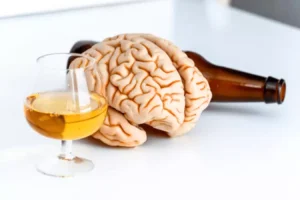
Substance abuse changes the structure and chemical balance in the brain. This makes your brain think it needs drugs and alcohol to function. It will do whatever it takes to get them because its job is to help you survive. Regardless, only the person with the addiction can choose to stop alcohol or drug abuse. Until they’re ready to make that commitment, nothing you do will have the impact you hope for or expect. At ALYST Health, we understand how difficult it can be for those struggling with addiction as well as their loved ones.
Healthy Relationships

Substance use disorder may sometimes impact a person to the point of risking their job or housing. It may feel impossible to refuse to help a loved one in this situation. Family therapy sessions can take time, and it can be tempting to skip a session — particularly for families with a number of conflicting appointments and agendas. However, this work is vital to the mental health of everyone involved, so meetings should be attended whenever possible.
Identifying the Need for Professional Help in Dealing With Addiction
- Many people find themselves in a codependent relationship.
- But one of the most important steps in healthy detachment can be unapologetically putting your own safety and health first.
- He will have an army of people behind him and beside him when he makes the decision, but until then, I and others who love him are powerless.
- I’m barely talking to him because I’m so over everything.
- There may be times when your loved one struggles more intensely with cravings, emotional distress, or even relapse.
It may be necessary to seek legal assistance to save your loved one’s life. Partners can look into civil commitment laws (e.g. sectioning) within their state, to explore involuntarily sending your partner to treatment. If you feel like you may be in danger of harm, or feel that your relationship is no longer healthy, it may be necessary to seek an end to the relationship. Love and an unhealthy attachment may coexist or be hard to differentiate.
Understanding an Addiction: The Basics
- She started attending sex and love 12-step groups in the late 1990s.
- As the old phrase goes, You can’t pour from an empty cup.
- At our Lancaster, California rehab center, we understand the complexity that often extends past the addicted when looking at the family relationships of addicted persons.
- Ultimately, your loved ones must be willing to reconnect and try to rebuild your relationship, which can be a vulnerable decision if they’ve been hurt in the past.
- There are tips and resources available to help you along your SUD and relationship recovery journey.
It’s also common for the stress of addiction to negatively impact the mental health of family members. Seeking professional counseling or family therapy can help you process difficult emotions, regain perspective, and prevent resentment or enabling tendencies. Properly caring for yourself allows you to better care for your loved one while avoiding exhaustion that could lead you to compromise on boundaries. loving an addict Current research shows that both genetic and environmental factors influence a person’s risk of developing an addiction.
Educate Yourself About Addiction

Taking care of your own physical, emotional and mental needs first will make you better equipped to help your loved one through the difficult journey of recovery. As the old phrase goes, You can’t pour from an empty cup. There are also many support groups for families that can provide care and community as you navigate this challenging role. Showing compassion and support to someone dealing with substance use disorder is completely appropriate.

No matter what an addict says or promises, they are only driven by their desire to continue using, and there’s not much of anything you can do to change that. Darlene Lancer, JD, MFT, is a licensed marriage and family therapist and an expert and author on relationships and codependency. American Addiction Centers (AAC) is committed to delivering original, truthful, accurate, unbiased, and medically current information. We strive to create content that is clear, concise, and easy to understand. Begin self-care by targeting the aspects of your physical health that are damaged by stress. By addressing these, you can return to a healthy level of functioning.
- With a compassionate approach, you can stand by your loved one on their journey toward recovery, knowing you’re doing everything you can to get them the help they need.
- I am grateful for the kindness they’ve shown me and the lessons they’ve taught me.
- I have learned to take care of myself and dare I say it, like myself.
Until that time comes, here are some tips for living with an addict as well as some hard truths you need to face. At the same time, be careful not to enable addictive behaviors or become over-involved to the point of sacrificing your own well-being. Maintain healthy boundaries and seek support when you feel overwhelmed.
Harmful beliefs including that people with addiction are selfish, lazy, and destructive are still common. Watch your tone of voice and speak to your loved one without using a blaming or accusatory tone. Also, avoid calling the person names like “addict” or “substance abuser” as both can be stigmatizing. Use person-first language, such as referring to them as a “person with addiction.”
Additional Resources & Support For Families of Addicts

They may blame themselves when the addiction persists or blame the addicted person for their unhappiness. So reading your article about the guilt I have felt and uncomfortableness about asserting boundaries (money, lifts, babysitting, accommodation) has come at the best time. I feel a lot more confident to remain incognito from my most recent partner whom I do love, despite only knowing him a short time. It’s so sad as he is now homeless which has been a decision his own family have made due to his chaotic lifestyle and choices. Its such a sad and lonely feeling but again, your article has highlighted to me that I was enabling him and feeding into his addiction at great cost to myself and my own family. I truly hope he gets well and I am praying for him to see the addiction for what it is.
